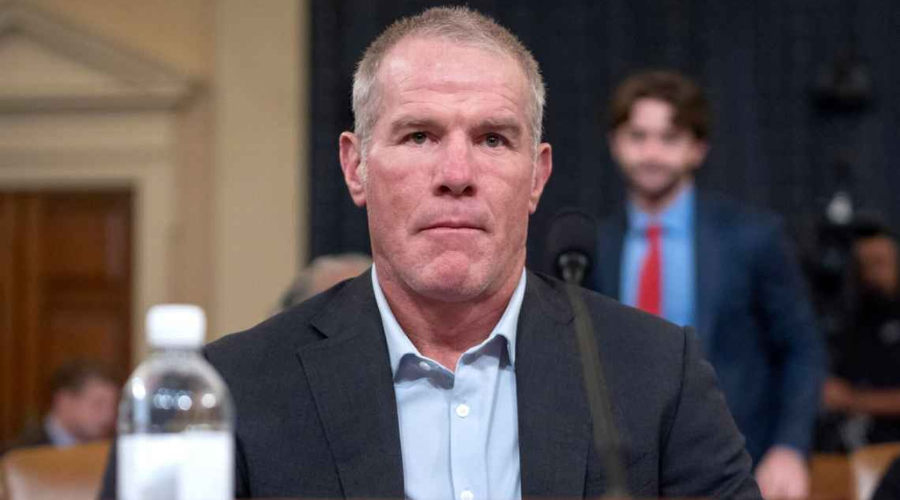Hall of Fame quarterback Brett Favre revealed during a congressional hearing on Tuesday that he has been diagnosed with Parkinson’s disease, a degenerative disorder of the nervous system that affects movement and causes brain deterioration. Favre’s health announcement came while testifying before the House Ways and Means Committee, where he discussed his involvement in the welfare fraud case that has entangled him since 2022.
Favre, 54, spoke about Prevacus, a company developing a concussion treatment, in which he was the top investor. Prevacus received $2 million in welfare funds from the Temporary Assistance for Needy Families (TANF) program, funds meant for underprivileged families. Text messages showed that Favre began seeking help from state officials to secure funding for the company as early as November 2018. During his opening remarks, Favre mentioned that he recently lost his investment in the company and revealed his Parkinson’s diagnosis, stating, “I’ve recently been diagnosed with Parkinson’s. This is also a cause dear to my heart.”
Favre’s diagnosis followed a 2020 study that found concussions significantly increase the risk of developing Parkinson’s. Favre previously stated in a 2018 interview that while he officially suffered “three or four” diagnosed concussions, he believes he may have had more than 1,000 over his 20-season NFL career. “When you have ringing in your ears, seeing stars, that’s a concussion,” he explained.
Although Favre’s health disclosure garnered attention, his testimony focused on the Mississippi welfare fraud scandal, where at least $77 million in TANF funds meant for impoverished families were diverted to wealthier individuals. Favre is one of many defendants in a lawsuit seeking to recover the misused funds. He has denied any wrongdoing and has not faced criminal charges. He explained during the hearing that he did not know what TANF funds were when he sought financing for Prevacus and a volleyball facility at the University of Southern Mississippi. He also received $1.1 million in TANF funds for speaking engagements that never occurred, though he later repaid the money.
The welfare scandal has significantly impacted Favre’s public image. He expressed frustration, stating that being labeled as someone who “stole welfare money” is “the lowest of the low” and far from the truth. Favre also criticized Mississippi state auditor Shad White, accusing him of using the scandal to further his political career. Favre is currently suing White for defamation.
Favre’s involvement in the welfare case overshadowed Prevacus’ founder, Jacob VanLandingham, who in July 2023 became the seventh person to plead guilty to charges related to the scandal. VanLandingham admitted to using TANF funds for personal expenses, including paying off gambling debts.
During the hearing, Favre called for stricter federal oversight of TANF funds, asserting that government officials in Mississippi had failed to prevent the misuse of welfare money. Favre emphasized the toll the case has taken on him and his family, saying the scandal has caused more distress than anything he faced in his football career.
While Favre received mostly friendly remarks from members of the committee, some direct questions came from Rep. Linda Sanchez (D-Calif.), who asked whether he had paid back the interest on the TANF funds and if he believed it was acceptable to divert funds away from needy women. Favre answered no to both questions.
Favre’s testimony highlighted concerns about how celebrities like him are treated differently compared to ordinary individuals accused of welfare fraud. Jarvis Dortch, executive director of the ACLU of Mississippi, pointed out that regular citizens face harsher consequences for far smaller infractions, while Favre, accused of misspending millions, was testifying before Congress.
